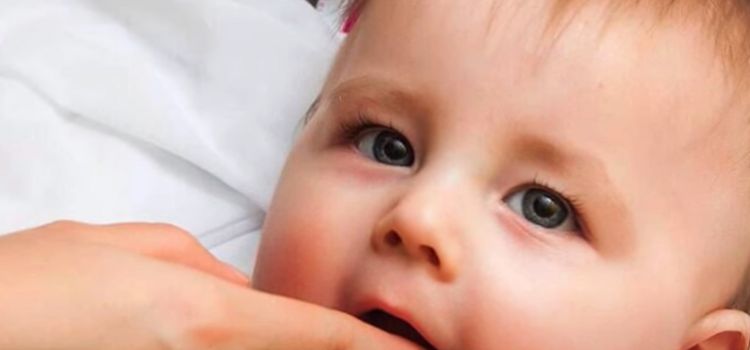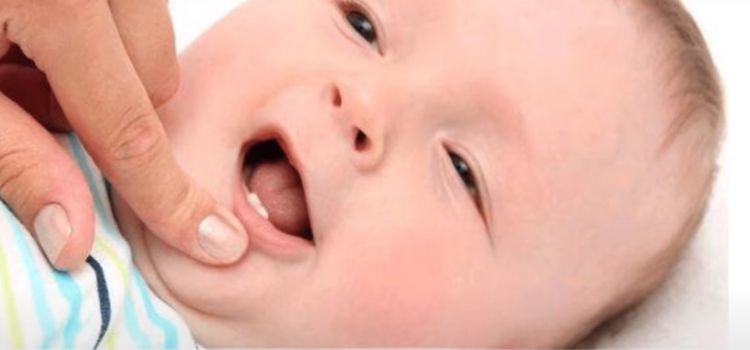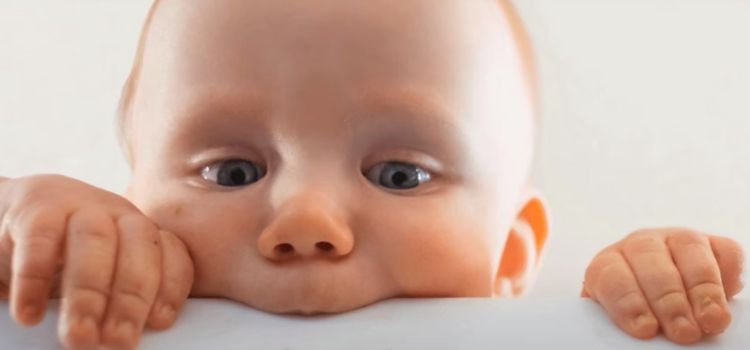As an Amazon Associate I earn from qualifying purchases.
Babies are interesting little creatures with a variety of actions and routines that sometimes confound parents. Teeth grinding is one such activity that frequently causes concern. Many parents are curious as to whether tooth grinding in babies is normal. This article will explain whether Is It Normal For Babies To Grind Their Teeth. Also, illuminate the probable reasons, outcomes, and when it would be best to seek medical advice. Keep reading to learn the truth about this typical but puzzling newborn habit.

Briefly introduce the topic of teeth grinding in babies.
Parents frequently worry about bruxism, or teeth grinding in babies. Many people question if teeth grinding in babies is natural and whether they should be concerned. Babies who grind their teeth typically begin at the age of six months and may do so until their permanent teeth erupt. Although it can sound concerning, teeth grinding in infants is typically accepted as normal and safe. However, if you have any worries about your baby’s teeth-grinding behaviors, it is always a good idea to speak with a pediatrician or dentist.
Highlight the common concerns and questions parents may have.
Parents frequently have similar worries and inquiries regarding the conduct of their infants, and one such inquiry is if teeth grinding in infants is natural. For parents, this bruxism-related behavior can be concerning. It’s crucial to remember, though, that teeth grinding in infants is typically a natural stage of growth. Typically, it happens when a baby is teething or when their new teeth are erupting. Even though it may sound unpleasant, there is usually nothing to worry about. It is always best to speak with a pediatric dentist for additional advice and reassurance if you have any concerns or if your baby’s teeth grinding persists or causes them distress.
Understanding Teeth Grinding:
Explain what teeth grinding is and why it may occur in babies.
The involuntary grinding or clenching of teeth is referred to as bruxism, or teeth grinding. Although it’s frequently linked with adults, it can also affect infants. Is it normal for babies to grind their teeth? It is, indeed. Teeth grinding is a common newborn behavior that usually goes away on its own. Although the precise etiology of teeth grinding in infants is unknown, it is thought to be related to the emergence and development of new teeth, discomfort from teething, or jaw development. Parents should monitor their child’s teeth-grinding behavior and seek pediatric dental care if it worsens or continues past the age of three.
Discuss the possible causes, including teething, jaw growth, and stress.
Babies frequently grind their teeth, and there are a number of reasons why this happens. Babies that grind their teeth may be affected by teething, jaw development, or stress. Infants who are teething naturally endure discomfort and may clench or grind their teeth to ease it. Additionally, as a baby’s teeth reposition in their mouth due to jaw development, grinding can occasionally occur. Additionally, teeth grinding might be a symptom of stress or anxiety. Parents can better address and manage this behavior in their babies by being aware of the possible causes.
Signs and Symptoms:
List the signs that indicate a baby may be grinding their teeth.
Is it normal for babies to grind their teeth? Many parents may be concerned about their children’s behavior. Although bruxism, often known as teeth grinding, is more common in older children and adults, it can also happen to infants on occasion. So what signs of trouble should you be on the lookout for?? Your infant may be grinding their teeth if you hear them grinding or gnashing their teeth, notice altered sleep patterns, or see evidence of jaw pain. If you are worried about your baby’s teeth grinding, it is crucial to speak with a pediatric dentist. They may offer advice and management suggestions for this behavior.
Mention any accompanying symptoms that may be present.
Babies frequently clench or grind their teeth, a condition known as bruxism. This habit typically takes place when you’re sleeping, and you might also experience symptoms like clenching your jaw, tension in your face, or a grinding sound. Although it may worry parents, teeth grinding in infants is typically seen as a common and transient condition. It is always advised to speak with a pediatric dentist for a more thorough examination and recommendations if you have any worries or notice that you are grinding your teeth excessively.
Is It Normal?
YES, it is normal for a baby to grind their teeth.
Explain that teeth grinding is relatively common in babies.
Babies frequently exhibit bruxism, sometimes known as teeth grinding. Many parents are concerned that their young children may be grinding their teeth. Yes, it is typical for infants to grind their teeth. Between the ages of 6 and 12 months, or when their first teeth start to erupt, is usually when this behavior begins. Although teeth grinding in infants may seem alarming, it is mostly innocuous and normally goes away on its own as the child gets older. It is crucial to keep in mind that it is always preferable to get advice from a pediatric dentist if you have any worries about your baby’s teeth grinding.
Discuss the typical age range when teeth grinding occurs.
The range of ages at which teeth grinding takes place can be wide, and it is typical for infants to grind their teeth. Is Teething Grinding Common in Babies? Parents frequently ponder whether this behavior warrants worry. Infants and early children, often between the ages of 6 months and 3 years, are susceptible to bruxism, which is the grinding or clenching of the teeth. Although it may appear concerning, this behavior is often thought to be normal and usually goes away as the child gets older.
Potential Concerns:
Address potential concerns parents may have regarding teeth grinding.

It is important to address any potential worries parents may have about babies’ teeth grinding. Typically, it is a passing behavior that disappears naturally as the child gets older. However, because excessive grinding can cause dental issues, parents should keep an eye on the frequency and intensity of teeth grinding. Parents can reduce their concerns and improve their baby’s oral health by being aware of the causes, offering calming strategies, and making sure their child has routine dental checkups.
When to Seek Professional Advice:
Provide guidelines for when parents should consult a healthcare professional.
Parents frequently wonder about and worry about their children’s health. While occasional tooth grinding is common and generally safe, frequent or persistent grinding may call for medical attention. It is crucial that parents are informed of the symptoms and indicators that can call for additional testing. Parents may make sure their child’s oral health is properly addressed by knowing the rules for when to consult a healthcare professional.
Tips for Managing Teeth Grinding:
Offer practical suggestions for parents to help manage teeth grinding.
Many parents are curious about this typical infant behavior. Teeth grinding, or bruxism is quite common in infants and typically goes away as they become older. Here are some useful tips to assist manage your baby’s teeth grinding, though, if you’re worried about it. First, make sure that your baby’s gums and teeth are kept clean to protect their overall dental health. Second, establish a consistent nighttime ritual to encourage relaxation before bed. Last but not least, give your child secure teething toys to chew on throughout the day. This can ease any discomfort and lessen the need to clench their teeth. You can control teeth grinding in infants and preserve their oral health according to these straightforward suggestions.
Discuss strategies like massage, teething toys, and soothing techniques.
Parents need to know that teeth grinding in babies is a typical infant activity when it comes to this issue. However, it is helpful to talk about tactics like massage, teething toys, and soothing ways to assist alleviate any discomfort or stop additional harm. The baby’s gums can be massaged with clean hands or a gentle cloth to provide comfort and diversion from teeth grinding. It can also be beneficial to provide comfort and encourage healthy dental growth using teething toys that are specifically made to be safe for infants. Additionally, soothing methods like lullabies and gentle rocking will relax the infant and lessen any stress that might be causing the teeth to grind. Using these methods, parents can assist their infants in navigating this typical phase with ease.

Conclusion
In conclusion, teeth grinding in infants is a common occurrence. Although teeth grinding may be a normal part of a child’s growth, it is crucial for parents to keep an eye on their child’s behavior and seek medical advice if they have any worries or if the grinding becomes extreme. Most of the time, teeth grinding in infants is only transient and has no long-term consequences. Nevertheless, it is crucial to promote appropriate oral hygiene practices and give your child a secure and comfortable sleeping environment.
Amazon and the Amazon logo are trademarks of Amazon.com, Inc, or its affiliates.